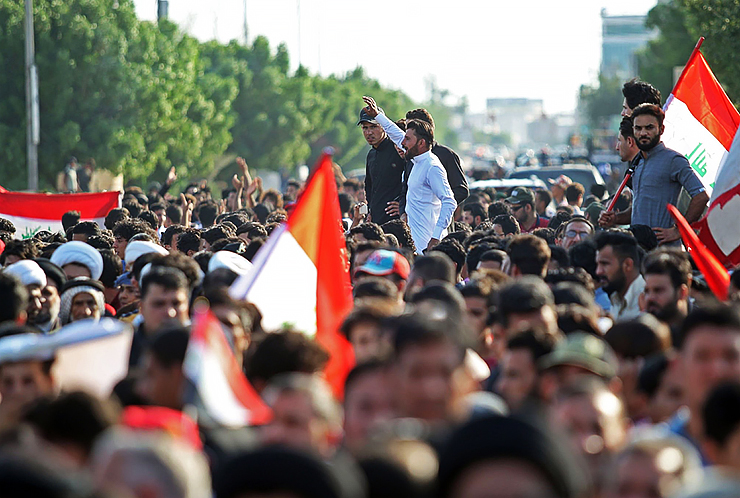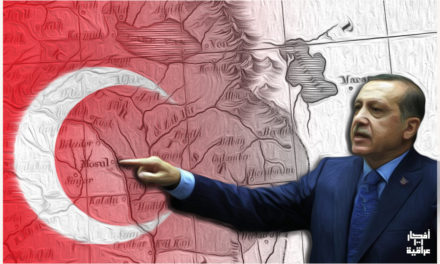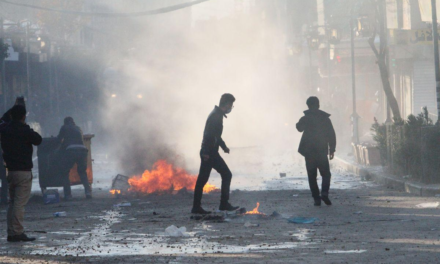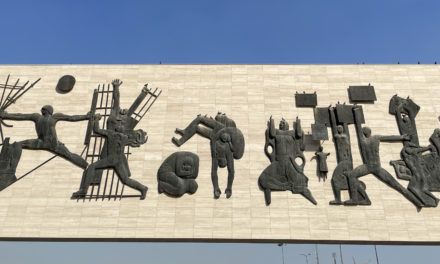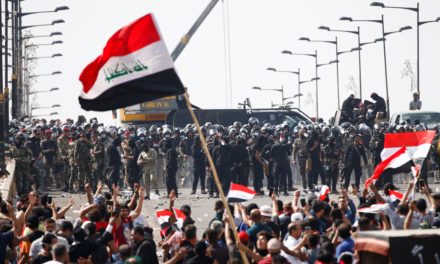The current demonstrations were likely and certainly warranted. In the sweltering heat of Basra and the lack of water and electricity, it should not be expected of Basrawis and the rest of southern Iraq to remain silent.
These demonstrations happen at a very sensitive juncture in Iraq’s political history. They come after the liberation of ISIS, the failed referendum of Kurdistan Region, and an election that witnessed low participation rate and accounts of fraud. The reasons behind the protests are legitimate and in fact necessary, but as is often the case in Iraq, no large-scale development happens without an attempt of hijacking and utilization for political reasons. Hence it is about the origins of the demonstrations as much as it is about how the current situation and its outcome is politically exploited.
Regarding the timing, it comes at a very peculiar time politically, when the parliament has expired, the government is in caretaker mode, and a recounting process of election ballots is ongoing. Demanding services from a caretaker government that is to change in the upcoming months will not lead to much.
On the other hand, it is not farfetched to say that there are political parties that could capitalize on the protests. The Sadrists and the Communists who formed the Sa’eroon alliance have always been at the forefront of demonstrations. But precisely the Sadrists have been notorious for attacks on public facilities to put political pressure on the government, especially considering that Sadr’s party was not one of the targets of the angry demonstrators, except for sporadic incidents, while all other Shia party headquarters throughout the south were the target of arson and destruction. There is the possibility that Sa’eroon is not to be included in future alliances although it won the majority of the votes, and hence it is pushing hard for these demonstrations in order to exert pressure on the other political factions to prevent that from happening.
Add to that the former Ba’athists who are always quick to jump when something negative happens in Iraq. This can be seen through the hashtags they used in the recent days on social media encouraging people to revolt, as opposed to positively engage and bring about real reform. They certainly do not control the demonstrations; however, they strive for turmoil, thrive in unrest, and are experts at exploiting developments to cause disruption.
The vandalism and violence that accompanied the demonstrations, especially the attacks against oil facilities, Najaf’s airport, and local government buildings, complicate the situation further. It puts Iraq’s security forces in a hard spot by being sympathetic with the demonstrators’ demands on one hand but having the duty to protect public facilities and fend off physical attacks against them.
The most crucial question, however, is what the future of these protests will hold and how they can be used to support the democratic process instead of being used to undermine it. These demonstrations are necessary for inhibiting the ‘sense of urgency’ that any successful change effort requires, and them cooling off without any consequences will mean business as usual for government officials. While many think of Baghdad when the government is mentioned, a lot of blame is to be directed at local governments who use the unclear boundaries between local and federal as an excuse to do nothing.
Analysts argue that there is a healthy protest movement in the country, but this movement needs to be transformed into political campaigns that push systematically and consistently for the betterment of the services.
There is no real opposition in the country, given that all major parties want and actually have participated in the government. The protestors, if better organized, can fill that vacant role. While half of the eligible voters did not vote, which by itself is a statement, this rejection should turn into something positive through establishing alternative movements and parties instead of calling for undemocratic solutions like revolutions and military coups.
The non-profit sector is also ineffective. Since 2003, about 6-12K NGOs registered in Iraq, yet they do not play any significant role in the political and social arena as is expected of them. Instead, they are fronts for political parties to increase their popularity amongst people and used for ‘patronage networks management,’ but do not provide real services for society. The activism for better facilities should be the arena of this non-profit, which should engage the youth to work on bettering their situation and make them more politically involved, away from the current political structure and its ineffectiveness. A positive side effect is that these non-profits reduce pressure on the state to provide jobs by providing these themselves. Furthermore, they can also provide essential services or cooperate with the state in doing so, mainly pointing out to the shortcomings and offering alternatives.
There is a lot that can be done that is however not done by the government, the non-profit sectors, and Iraqi youth. A healthy and functioning democracy needs these, amongst others, to play their roles. While some analysts called these demonstrations a last chance for the government, it could be a new chance for the democratic process and a needed stimulation for it to become more effective.
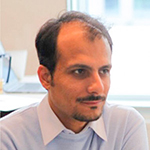
Muhammad Al-Waeli
Muhammad Al-Waeli is an Iraqi commentator on political and social issues. He is currently doing a PhD in Human Resource Management and is interested in politics, media, and development.

